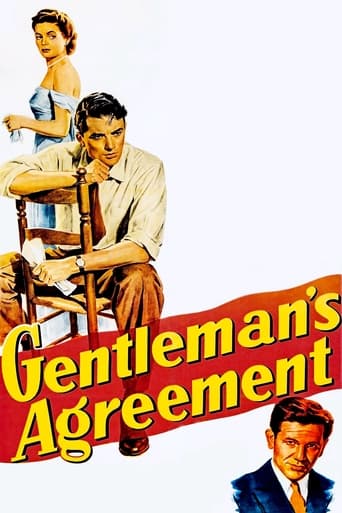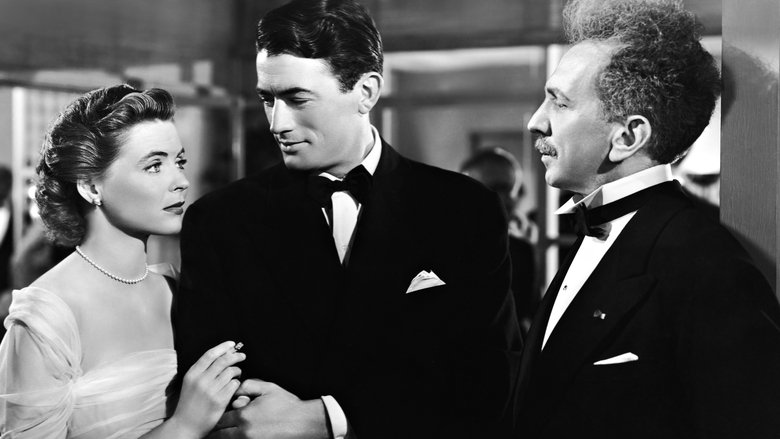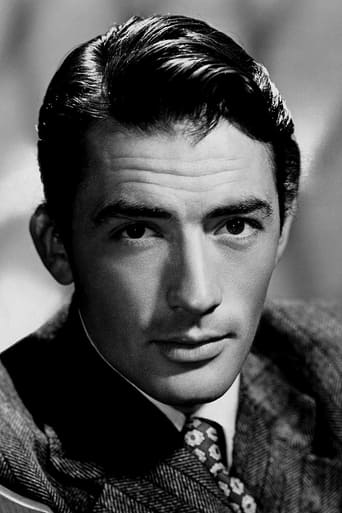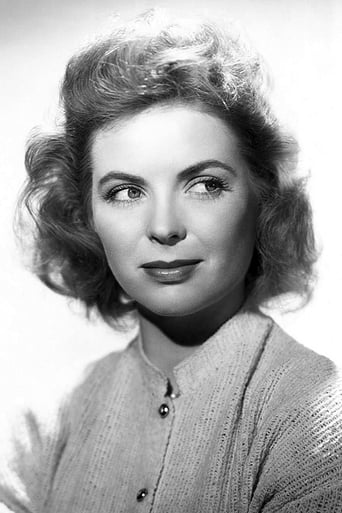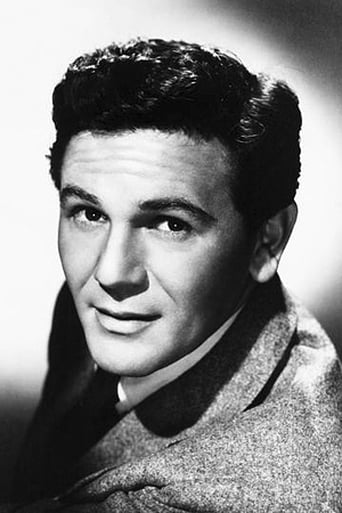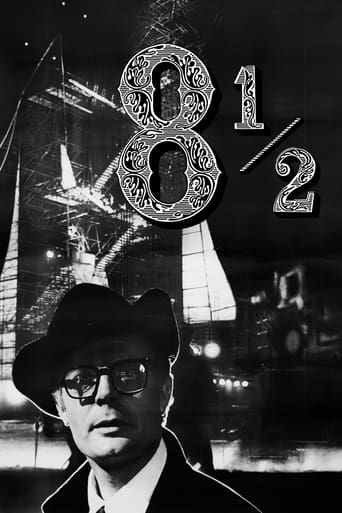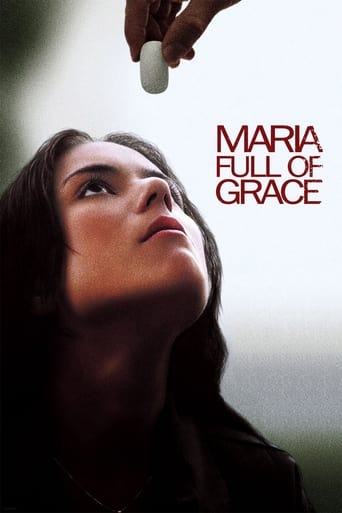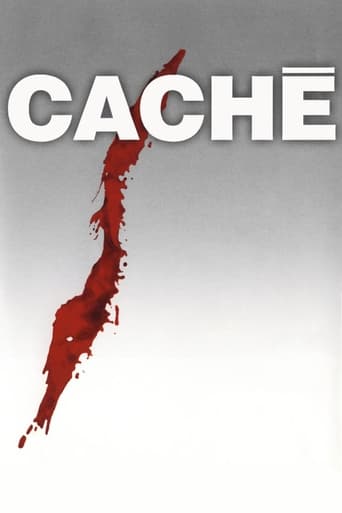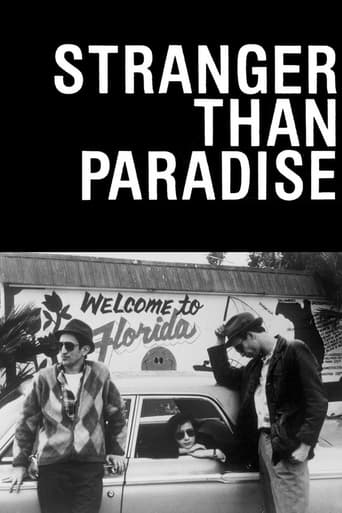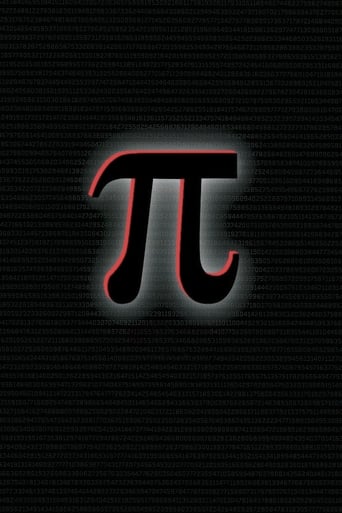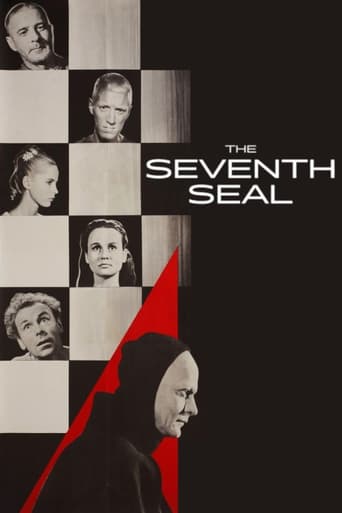Gentleman's Agreement (1947)
A magazine writer poses as a Jew to expose anti-Semitism.
Watch Trailer
Cast


Similar titles
Reviews
Terrible acting, screenplay and direction.
Am i the only one who thinks........Average?
Absolutely the worst movie.
If the ambition is to provide two hours of instantly forgettable, popcorn-munching escapism, it succeeds.
Gentleman's Agreement is such an eye-opening film. I never realized that Jewish people were treated like this in the United States. It is awful that everyday things like renting an apartment was not allowed by Jews and kids like Tommy were bullied for being Jewish. It shows the viewer how hard it really was for Jewish people and how horrible they were treated. Gregory Peck does a great job playing Philip just like he did a great job as Atticus Finch in To Kill a Mockingbird. He really helps develop the story and fits the part so well. Every actor did a great job to fit their parts and it was very well made and expressed such an important event in history.
Gregory Peck, the picture of American integrity, takes on the controversial issue of anti-Semitism in the first of his many groundbreaking films, Gentleman's Agreement. In his incredible career, he went on to tackle gambling addiction in The Great Sinner, unhappiness in Suburbia in The Man in the Gray Flannel Suit, and racism in To Kill a Mockingbird. To see a classic "Gregory Peck" role, rent at least one of those four.Greg plays a writer who uncovers the hidden anti-Semitic attitude in the "best areas" of America. He wants to expose this wrong, so he goes undercover as a Jewish man—I know, that sounds dated and offensive, but just give him a chance—and writes about his experiences with prejudice.At a time when America, and Hollywood, tended to sweep all problems under the rug, it was incredible that this movie was even made. Greg lives through some very eye-opening experiences. Friends of his confide in him and share their own anti-Semitic prejudices they've endured, and some aren't as open-minded as they seem to be. Joining the supporting cast are Dorothy Maguire, John Garfield, Ann Revere, Celeste Holm, Sam Jaffe, and Dean Stockwell. If you like movies about social causes or shedding light on the cobwebs in the room, rent Gentleman's Agreement and buckle up for an interesting, dramatic ride.
"I'M not racist, but "Do your eyes roll and fists clench in frustration before the sentence has finished? Fear not - Gentleman's Agreement is on your side. You'd expect a 'Social Problems Picture' dating from the better part of a century ago to play as cornball, and adorably (or troublesomely) antiquated. Instead, it's sobering how, in a contemporary context, Elia Kazan's scrappy interrogation of the deeply harmful societal prejudices imbedded in seemingly innocuous or inconsequential gestures and comments plays as just as poignantly timely as ever. Seventy years on, Gentleman's Agreement has lost none of its robust, fierce urgency, remaining one of the most intelligent conversations on privilege, and how distressing societal imbalances can be carved by those unable to acknowledge it. Many Hollywood films profiling racism dive straight into tackling overt, violent hate crimes. Here, screenwriter Moss Hart, adapting Laura Z Hobson's groundbreaking expose of societal antisemitism, is bold enough to dig one step deeper, into the more subtle, pervasive forms of racial and religious discrimination proliferating in so- called 'polite society' - job hunting, risqué jokes, schoolyard bullying, and general passive- aggressively rude treatment. It's solemn stuff, but Hart's eloquent screenplay, while occasionally toeing the line of excessive 'staginess,' nimbly gets the point across without devolving outright into pedantic preaching. Kazan's direction is just as provocative, framing his film with plentiful New York establishing shots to firmly ground the problem with pervasive antisemitism as a here and now problem, not a distant epidemic easy to wave away. The hook entails Peck's brooding journalist spreading rumours of a falsified Jewish identity in order to 'method write,' believing himself to be better equipped to write about antisemitism when he himself has been subjected to its ugly underbelly. For many, the premise will sound warning bells of a reappropriative, saccharine saviour of the Jewish community, who dabbles in empathy only to shrug off its hardships and cloak himself with his privilege anew upon the closing credits. It's a fair concern, and one, thankfully, that Kazan and Hart anticipate and circumvent, with peppery reminders throughout branding antisemitism, and any other such religious and cultural discrimination, to be everyone's problem, and that those who allow it to subtly fester by allowing dubious comments or actions to pass unchallenged, as just as culpable. In one sardonic instance, a real-life conversation between Jewish industry executives urging the filmmakers to quash the film for fear of 'rocking the boat' makes its way into the script itself, lending it even more power and wry credibility. Occasionally, the film stumbles somewhat over its own noble intentions. To make its point, Peck's compacted experience is a touch clumsily over-exaggerated (though it's a sad realization that this heavy-handedness is ultimately necessary for the message to properly land, whether in 1947 or current day), and there's no denying that a contemporary viewing necessitates suspension of disbelief regarding the more exposition-heavy tropes of the time. Nonetheless, some of Peck's grim, sanctimonious lectures still verge on tiresome 'Mansplaining,' even for the 1940s. Even more curiously but poignantly, Kazan and Hall's reticence in grounding the film in its contemporary cultural context (the script does take pot shots at some of the more outspokenly antisemitic government officials of the time, but abstains from any mention of the Holocaust, or World War II at all, outside of John Garfield's chipper GI) shows how touch-and-go evasion of Hayes Code censorship was. Regardless, Kazan keeps the pace brisk, entwining Peck's experiences of discrimination around a burgeoning romance that, irksomely, might not be as safe from outside microaggressions as he'd hope. Though both he and Kazan have retroactively disparaged his work here as too hesitant, Peck proves an excellent fulcrum for the film's message to roll off. Curbing his legendary dignity and calm with a bristling righteous indignation, Peck's grimness suggests he rankles at the oppression - both that he and his family personally experience, but also in a macro sense - with every fibre of his being. His refusal to let in dregs of his legendary warmth do leave his performance as somewhat wanting in levity, but he's seething and charismatic enough to effortlessly win attention regardless. Similarly, Dorothy McGuire is superb as his impassioned fiancée, and McGuire is wise and skilled enough to remain fundamentally enigmatic, commanding audience sympathy while simultaneously keeping them at arm's length with just enough eyebrow-raising comments to continually postpone a consensus on her character's affability. Finally, John Garfield provides the welcome reprieve of boisterous charisma the film sorely needs, though many of its more unexpected, quietly resonant moments are grounded in watching his face imperceptibly shift to weary resignation coming to terms with the subtle and overt hardships he, as a Jewish citizen is invariably subjected to, war hero status and all. Many will criticize Gentleman's Agreement as being overstated, earnest, or corny in a contemporary environment. Sadly, its message remains as urgently topical as ever in a global climate rife with socio- political intolerance and hatred - both overt, and as knowingly nigh-imperceptible as the film's title. And if a Gregory Peck civil rights double-bill (this and To Kill A Mockingbird, of course) could serve as the cultural balm the world needs, or causes a single viewer to pause and reflect before uttering a politically dubious generalization over dinner, then Gentleman's Agreement is beyond intelligent, eloquent, and piercing: it's borderline essential. -9/10
Just two years after Kazan's feature-film debut (and the end of WWII) came this firecracker which became up to that point his most successful film (although A Tree Grows In Brooklyn and Boomerang would also garner Oscar nominations), and it's ironic that so shortly after a great war was won, mainly against racism and the killing of Jews overseas, Gregory Peck's Schuyler Green, in undercover work for an expose to satiate his new, New York City boss, discovers rampant anti-Semitism uncomfortably much closer to home. I love John Garfield's work, rather late in his short career, in the supporting role of Dave Goldman (he should have received an Oscar nomination as well). The film was very successful, taking in three trophies for eight tries altogether (for Best Director, Picture and Supporting Actress--Celeste Holm), and its ending--stressing that forgiveness and tolerance are possible (when Green returns home and forgives his wife)--is very important, though he chose the wrong woman...

